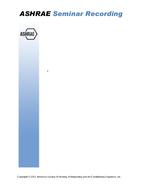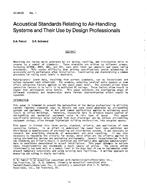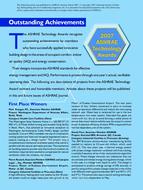The environment aboard commercial aircraft is different than that found in other spaces commonly occupied by people. Occupant density is typically high, and occupant activity levels range from almost completely sedentary (passengers) to very active (flight attendants). Aircraft passengers and crew make up a wide cross section of the general population, ranging from the very young to the very old, from the healthy to infirm, and from frequent flyers to inexperienced flyers. In addition, the aircraft must be regarded as both a public place (passengers) and a workplace (crew). A unique aspect of the aircraft environment is that, unlike many other indoor environments, including those for some other modes of transportation, occupants do not have the ability to remove themselves from the environment. The controlled atmosphere aboard the aircraft in flight is at a lower pressure and relative humidity than that found in many other environments. The environment outside the aircraft in flight is hostile to human life and, while aircraft are operated with the comfort of passengers and crew in mind, their safety and health must always be paramount.
This standard addresses these unique characteristics of aircraft cabin environments as well as characteristics that are common to many other indoor environments.
Related Products:
Standard 62.1-2007 — Ventilation for Acceptable Indoor Air Quality (ANSI/ASHRAE Approved)
Standard 62.2-2007 — Ventilation and Acceptable Indoor Air Quality in Low-Rise Residential Buildings (ANSI/ASHRAE Approved)
Units: Dual
Keywords: aircraft IAQ, airplane air quality, air passenger comfort, cabin air quality
Product Details
- Edition:
- 1st
- Published:
- 2008
- ANSI:
- ANSI Approved
- Number of Pages:
- 20
- File Size:
- 2 files , 1.2 MB
- Product Code(s):
- D-86493


